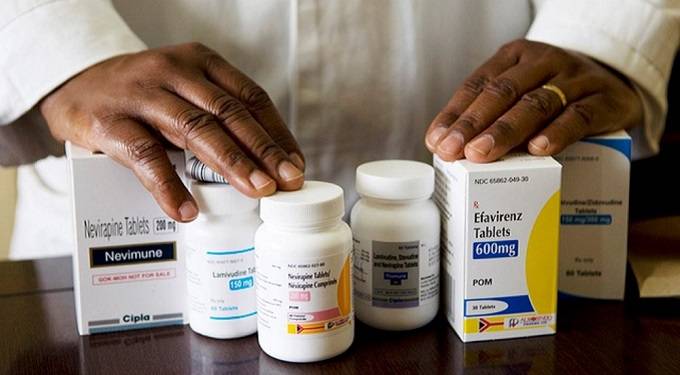EDITORIAL COMMENT: NatPharm must efficiently distribute ARVs

Bulawayo’s delight over news of the suspension of the water shedding programme was yesterday marred by a report that a number of locals who are on anti-retroviral drugs (ARVs) haven’t been accessing them lately.
The city had, since February, been struggling under a 48-hour water shedding regime, which, coupled with concurrent electricity load shedding, made life impossible for those who rely on council water and the national grid. Residents were being forced to wait for long periods at communal boreholes particularly in the western suburbs to be able to fetch water.
Reports say in desperate situations, some had no choice but to buy it from those who saw the crisis as an opportunity to earn a few more dollars. Others were being forced to store it up to take them through the two days when their taps were dry. It was an enormous inconvenience indeed, but the Bulawayo City Council announced yesterday the suspension of the water cuts. Residents are happy with the respite but some among them who are infected with HIV are facing challenges accessing the life-saving medication because of distribution inefficiencies at the National Pharmaceutical Company of Zimbabwe (NatPharm).
We reported on these pages yesterday that lack of the drugs in the city has led to those on line two regimen — a stronger and more expensive version of ARVs — to be sent back home as there are no stocks for the medication. The few lucky ones who are finding them are getting only a week’s supply instead of the usual three months’ supply.
Mr Dumisani Nkomo, who is on line two, spoke of the stress of going without his medication.
“At first we thought it was an error but it is now evident that we no longer have enough ARVs for HIV positive members of the public. I for one am on line two but during my last visit, I was told that I had to take something else while waiting for supplies which means we may easily default to line three,” he said.
“We feel like someone is gambling with our lives and it is important that whosoever is responsible is aware that most HIV positive people did not apply for this but were victims of abuse, infidelity and many other reasons.”
It is stressful and potentially dangerous for someone on ARVs to skip taking their drugs as this causes resistance to the regimen he or she is on. If their bodies develop such drug resistance, the persons would be put on the next and often more expensive drug combination. In addition to being more costly, second and third line regimens tend to cause some side effects on those taking them. Defaulting also increases the risk of the infected spreading the virus to their sexual partners. In a number of very unfortunate cases, the irregular intake of the critical medication can lead to one’s health condition deteriorating to Aids and loss of life.
The National Aids Council (Nac) reported in February that Bulawayo had 74 237 HIV positive people. Of that figure 68 270 people were on the first line regimen while 3 969 were on second line and 35 on third line.
The fact that 4 004 people were on second and third line drug combinations, Nac said, was evidence that they were defaulting, risking their health.
According to the statistics, which are fairly recent, thus in our view fairly representative of the situation on the ground five months later, there are about 4 000 in the city who are not getting their ARVs as regularly as they should.
While distribution challenges must be ironed out immediately, it is good that the country is not facing a shortage of the drugs as Mr Donald Mujiri, Ministry of Health and Child Care public relations officer said.
“The permanent secretary Dr Agnes Mahomva recently confirmed in a Press conference that we have enough ARV stocks in the country. However, we cannot rule out the fact that due to delays in deliveries by the National Pharmaceutical Company of Zimbabwe (NatPharm), other institutions could be affected,” he said in yesterday’s edition of Chronicle.
Mr Nkomo was obviously speaking for himself and his colleagues in line two. There may well be many more than 4 000 who aren’t in his category who are not accessing their medication because of inefficiency at NatPharm. This is a very huge number of people whose health must be preserved. NatPharm must get their act together so that people living positively and are getting medication on the public rollout are well supplied.
We have to emphasise that this may not be a Bulawayo problem. It might just be that the local case has been reported yet many more people elsewhere in the country are facing the same predicament. We are saying this because the Community Working Group on Health this week said there have been general complaints with regard to ARV distribution countrywide.
It therefore behoves on NatPharm to just do their job, which is to distribute the drugs so that those in need of them in Bulawayo and elsewhere have them as and when they should. We don’t want our people to suffer unnecessarily. Broadly, we also don’t want to have a situation where the gains that the country has scored over the past 19 years in terms of scaling up access to treatment as well as reducing the HIV prevalence rate, morbidity and mortality are curtailed because of NatPharm’s failure to distribute drugs which are actually available in warehouses.








Comments